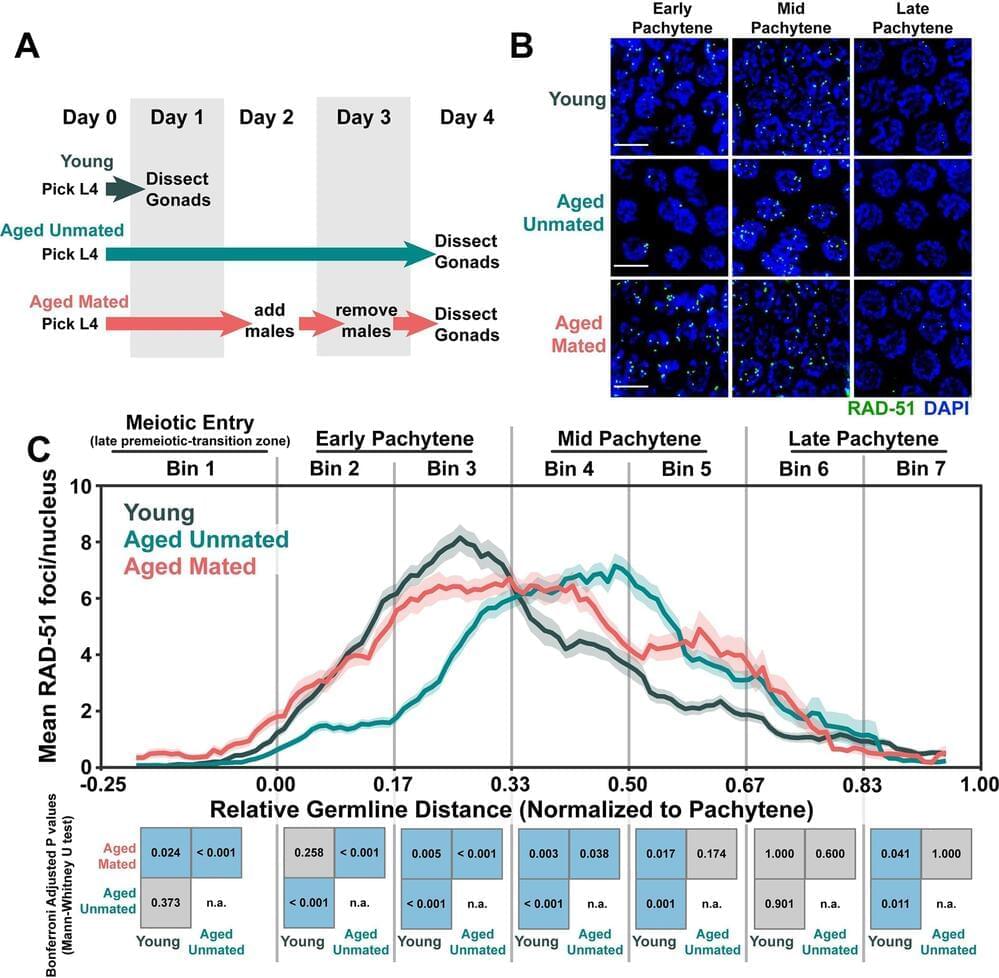Even worms have a ticking fertility clock. Older worms are less efficient at repairing broken DNA strands while making egg cells—part of a process that’s essential for fertility. A new study from University of Oregon (UO) biologists suggests one possible reason that reproduction slows with age.
Researchers from the lab of Diana Libuda report the findings in a paper published Nov. 7 in PLOS Genetics.
Each sperm or egg cell has only half the number of chromosomes found in a regular cell. During meiosis, the cell division process that forms sperm and eggs, the parent cells must evenly divide their DNA. The costs of error can be high, since incorrectly divided chromosomes are a major cause of birth defects.










Comments are closed.